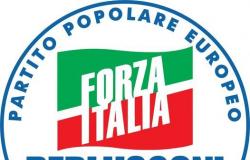
The 5 consequences of the European vote on the economy
(Federico Fubini) For decades there has been talk about the democratic deficit of the European Union and the indifference of citizens towards its institutions. Brussels seemed like a meeting place for cold, distant technocrats, not a truly common capital. In all European elections from 1984 to 2014, turnout was consistently declining. But now everything is changing. For the second time, after 2019, turnout in the parliamentary elections in Brussels and Strasbourg appears to be increasing (while in Italy it is decreasing, after almost all parties ran a perfect campaign to discourage citizens from voting ). But the result on a European scale is clear: it is increasingly recognizable in the Union a European political space. Europe is crossed by common waves of opinion and political groups compete with each other across national borders. The democratic deficit is no longer there. Hundreds of millions of Europeans understand that choosing their MEPs is important. Therefore a European political space really exists. Except that it doesn’t look at all like what those who have worked for a European democracy for decades imagined. The winners today are those who didn’t want this space: the extreme right, the sovereignists, the historically anti-European right; nationalists who are certainly different from each other, but who until a few years ago all wanted to abandon the euro or the European Union. Today they have changed their strategy: they prefer to try to change the system from within. Welcome to a rather special “Whatever it takes” this Monday, because we will try to see some possible consequences – especially economic ones – of last night’s political earthquake.
The first consequence: the circuit of impossibility
My very good colleagues on the site Courier, from the correspondence offices of Berlin, Paris and Brussels, in the very popular newsletters “La prima ora” or “Political diary” and of course in the paper newspaper they have all the results. I therefore refer to these sources for the details of the electoral outcomes, which are naturally important and not fully consolidated as I write. But four consequences are already looming on the horizon, recognizable as the wind crossing the continent. Especially in the six founding countries of what is now the European Union: between Germany, France, Italy, Holland, Belgium and Luxembourg, only the latter – a tiny principality – seems immune to the rise of the right.
The first consequence is that the European Union seems caught in a circuit of impossibility: everyone (or almost everyone) agrees on the policies that are urgently needed, but in order to implement them, last night’s winners would have to radically change their position . As Wolfgang Munchau, collaborator of the “Corriere” on European issues, likes to say, “an unstoppable force meets an unshakable object”. What I mean? Go and review the speech that Mario Draghi gave in April to the National Association of Business Economists of the United States or the final considerations of the governor of the Bank of Italy Fabio Panetta or even the sentences of the founder-head of the maxi-investment fund Blackrock , Larry Fink, at the “Corriere”: Europe has lagged not only behind the United States and China, but also compared to South Korea or the United Arab Emirates in the race for technological progress. Since 2010, European economies have invested between $1.5 trillion and $2 trillion less than the United States, proportionate to the size of the economy. And it shows, not only in the average income per inhabitant in Europe which is now a third lower than in the United States. Above all, we are very far from leadership positions in artificial intelligence, innovative medicines, electric mobility, green technologies and semiconductors. There’s no need to even talk about the defense.
For Europe and Italy to compete in the looming century, large projects and strong common investments would be needed in all strategic areas. Not on the scale of each of our countries, which are in fact irrelevant, but at least on that of the euro area. In other words – as Draghi and Panetta say – we would need common issues of European debt, or a large contribution of resources from national governments to Brussels, or new European taxes that give the Union the ability to act. At the same time, much more integrated financial markets would be needed: a single large stock exchange, a single large regulator, instead of a few dozen small or tiny national capital markets. Without all this, the Union will not have the resources for the necessary investments – at least 500 billion euros more per year – and Europe is destined to become an earthenware vessel in the world that lies ahead. Italy, an earthenware vase in an earthenware vase.
But do the results of this weekend’s elections make these turns more or less likely? Will the nationalist forces that are vying to count be able to realize this vision or will they take refuge in resentment and revanchism over the decline of small homelands? I can imagine that Giorgia Meloni’s Italy would be in favor of more European debt, because it would overcome our chronic national public debt problem. But imagine the Dutch government, in which the strongman is the far-right ultra-nationalist Geert Wilders, accepting even one of the proposals on competitiveness that Draghi is about to make in July? Wilders is the one who was protesting in the street with the sign: “Not a cent of a euro for Italy”. Or imagine the Belgian far right? Or the liberals in the majority in Berlin, terrified at the very idea of losing more votes to the post-Nazis of Alternative für Deutschland? Can you even imagine a government of Marine Le Pen’s Rassemblement National – a plausible and perhaps imminent prospect, after last night – accepting such a scenario of European integration?
Because the nationalist right-wing parties in different countries have this particular thing: they can boast ideological affinities; but precisely because they are nationalists, once they come to power they will end up clashing with each other precisely on the issues of the presumed “national interest”. Unless, of course, they deny everything they have been and change course 180 degrees.
Precisely the clear possibility that Marine Le Pen’s party will come to government in France in the next few weeks triggers the second economic consequence of yesterday’s elections. And this directly concerns Italy. Because – for those who have forgotten – the ink on the new Stability Pact is still fresh. And France and Italy will be under special observation in the next few weeks, when the European Commission will propose that both enter into proceedings for excessive deficit given their public finances are completely off course. In theory, both countries should present serious and stringent recovery plans in September. But can you imagine a Lepenist Economy Minister accepting a decree from Emmanuel Macron that raises taxes or cuts spending? Or imagine the French president taking on the political risk of such a decree, while his own government protests? Rather, it is likely that Italy will try to follow France in an attempt to unseat the seams of the new Stability Pact that has just been assembled, and thus get away with it. Rome always hopes to be able to avoid, in some way, a restrictive budget law.
But it doesn’t mean that such a strategy would be a gala lunch. First of all, because the European Central Bank would no longer provide the current coverage for Italian debt if Italy does not comply with the new budget rules. Furthermore, the recent downgrading of France by Standard & Poor’s reminds us that the markets’ long honeymoon can always end. Therefore, yesterday’s vote could lead the euro area, France and even Italy into uncharted waters on the budget policy front.
The other consequences, from the green deal to the geopolitical chessboard
On the third consequence it is barely necessary to give the title, because yesterday’s vote for the right and against the greens throughout Europe will lead to a revision and loosening of the constraints of the “Green Deal”.
I am more intrigued by the fourth and fifth consequences, which are more geopolitical. Because if the right-wing winners of this European round have something in common, in addition to their apparent Trumpism, it is their distrust towards the real Donald Trump in the flesh. True, Matteo Salvini of the League and Alternative für Deutschland gave him some credit. But everyone else, starting with Meloni and Le Pen, remained surprisingly silent. They too understand – like their domestic adversaries – that Trump’s return to the White House would put Europe’s back against the wall. How can we even defend our pale growth if the United States puts 10% tariffs on all European exports (and on the almost 80 billion dollars of Italian exports)? With what resources do we ensure our security if Trump really withdraws the traditional American guarantee on the continent? Because, precisely, the nationalist right is destined to be such even against ideologically similar governments. And Meloni and Le Pen, deep down in their hearts, must be almost as worried about this as Macron or German Chancellor Olaf Scholz.
The fifth consequence is then easy to imagine: someone in Moscow must have popped champagne last night when they saw the election results in France or the success of Alternative für Deutschland in Germany. He lives in the Kremlin and, obviously, his name is Vladimir Putin.
This article was originally published in the Corriere della Sera newsletter «Whatever it takes» edited by Federico Fubini, click here to subscribe.





